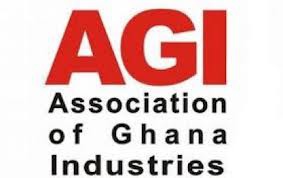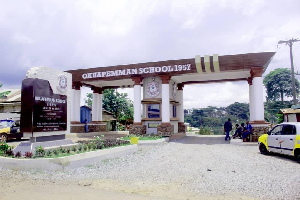- Home - News
- TWI News | TV
- Polls
- Year In Review
- News Archive
- Crime & Punishment
- Politics
- Regional
- Editorial
- Health
- Ghanaians Abroad
- Tabloid
- Africa
- Religion
- Election 2020
- Coronavirus
- News Videos | TV
- Photo Archives
- News Headlines
- Press Release
Business News of Monday, 23 May 2016
Source: B&FT
Review levies on power tariffs - AGI
 File photo
File photo
The Association of Ghana Industries (AGI) has asked government to relook the various tax components on utility tariffs that have significantly raised the cost of power for businesses in the country.
Chief Executive Officer of the association, Seth Twum-Akwaboah, told journalists: ““It is becoming obvious that electricity today is expensive; and the key components contributing to that are the levies which have been imposed.
“The cost of supply has to be intact, but the levies on them are additional costs which can be looked at. We are therefore asking for a review of electricity tariffs based on the levies that have been imposed so businesses can cut down on cost.”
Mr. Akwaboah, who was speaking on the sidelines of an engagement between industry, utilities providers and the Public Utilities Regulatory Authority (PURC), argued that since those levies do not go directly to the power seller, Electricity Company of Ghana, they can be reviewed so businesses pay for only the power they consume to cut down on general operational costs.
According to the AGI Business Barometer for first quarter, 98 percent of businesses are constrained by the recent tariffs for electricity and water, which were previously not an issue; while most of them cited concerns about the high utility bills and transparency in the billing process.
According to the report, although some companies have put in place frugal measures to counterbalance the high utilities to save cost, the ultimate impact will add to the cost of doing business in the country.
Levies on utility tariffs include but are not limited to the National Health Insurance Levy and National Electrification Levy.
“What we realise is that these taxes don’t go directly to the ECG but to government, and therefore they can be reviewed so that industries pay for the energy they consume to the ECG.
“I won’t say government should take all the levies off, but if businesses are complaining about the cost of energy then it is a cause for concern,” Mr. Akwaboah noted.
According to him, when these taxes are continuously passed on to businesses it will have really serious effects on their operations: “That is what has been coming out of discussions with them”.
Access to reliable and consistent power supply was a key challenge to businesses last year due to an erratic power situation. This year has “seemingly stabilised” -- a development that has driven-up confidence in the business environment. The challenge, as at the first quarter of this year, has been the cost of energy.
The purpose of the engagement was for utilities providers to explain to consumers, mostly businesses the cause of recent hikes in utility tariffs.
Mr. Akwaboah said further: “Normally, what used to happen was any time there were major increments in utilities we are given an indication of the various changes coming about, so that we could make the necessary preparations.
“This time round there were no discussions, but the actual figures were not disclosed to us until they were announced; and then after they were announced we wanted our companies to have the bills in order to monitor them to see the impact being made on the businesses.
“What happened was we had a lot of complaints from members; the tariffs that were announced were not actually what was being billed. They were billed way higher, so we created this platform for utility companies and the regulator to explain to members the differences they were having.”










